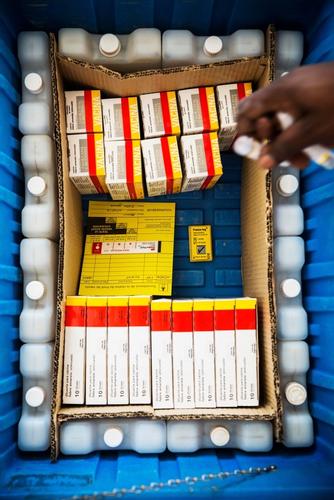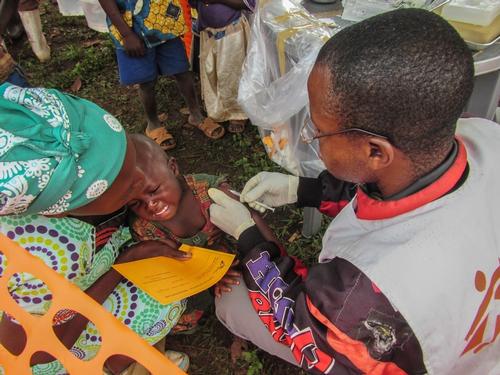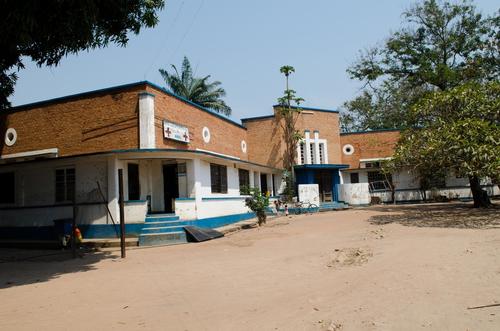Brussels/Kinshasa – MSF is mobilising considerable resources to support the Congolese authorities in their wide-scale campaign against yellow fever, where 10.5 million people will be vaccinated in the next ten days.
MSF is organising the work of 100 teams of 16 people in three health zones of Kinshasa. Fifty-eight international and 103 national Congolese staff from MSF will be managing the campaign to vaccinate 760,000 people, or 10 per cent of the capital city’s 7.5 million-person vaccination target. To respond to this challenge, MSF flew in international staff from 19 countries and redeployed dozens of its Congolese staff working in regular projects across the country. A total of 1,600 staff from the Congolese Ministry of Health will be working alongside MSF in the three health zones, including nurses who will be giving the vaccine shots. Such a wide-scale vaccination campaign comes with numerous logistical challenges, such as managing the movements of a fleet of 65 vehicles in densely populated neighbourhoods and, especially, ensuring that the cold chain is running smoothly. Every day, the teams need to renew 4,000 ice packs and coolers in different locations.
“Considering that there is a very safe and effective vaccine, this campaign is an essential step to containing the spread of the outbreak, but vigilance will remain crucial in the upcoming months”, says Axelle Ronsse, MSF’s emergency coordinator.
MSF has been present since the start of the epidemic in the DRC and is currently working in Kinshasa and Kwango province, near the Angola border. It has already vaccinated the entire population of Matadi city (370,000 people), supporting the Congolese Ministry of Health. Between the Matadi and Kinshasa vaccination campaigns, the organisation committed 2.4 million euros to vaccinate over a million Congolese against the deadly virus.
In addition, MSF provides case management for suspected and confirmed yellow fever cases, and organises vector control activities to control the mosquito population, the carrier of the yellow fever virus.
According to the WHO, since the start of the epidemic last January in Central Africa, Angola recorded 879 confirmed cases of yellow fever and 119 deaths from the disease; the DRC confirmed 74 cases that led to 16 deaths. Yellow fever cannot be cured and treatment is limited to alleviating symptoms. It kills from 15 to 50 per cent of those developing the severe form of the disease. Vaccination is the best way to prevent the disease.





